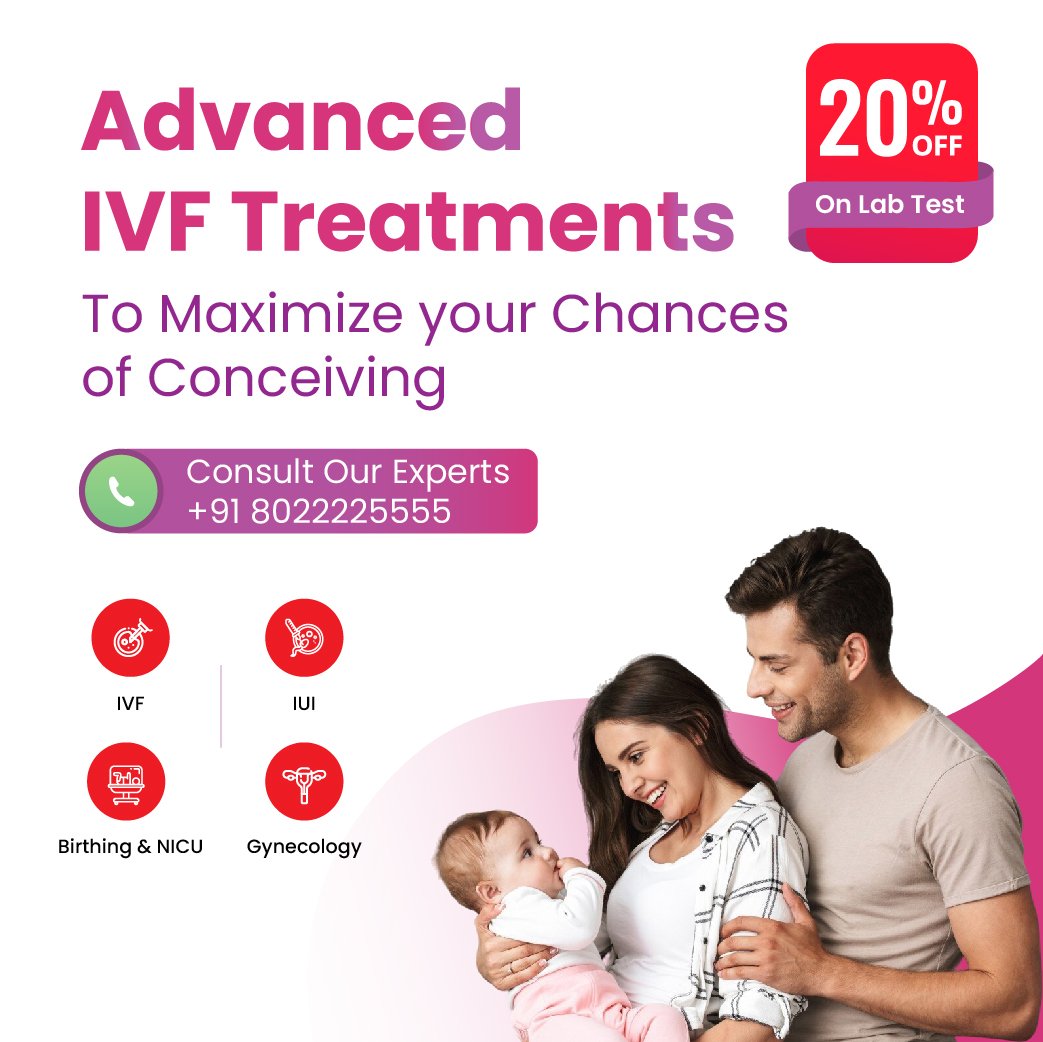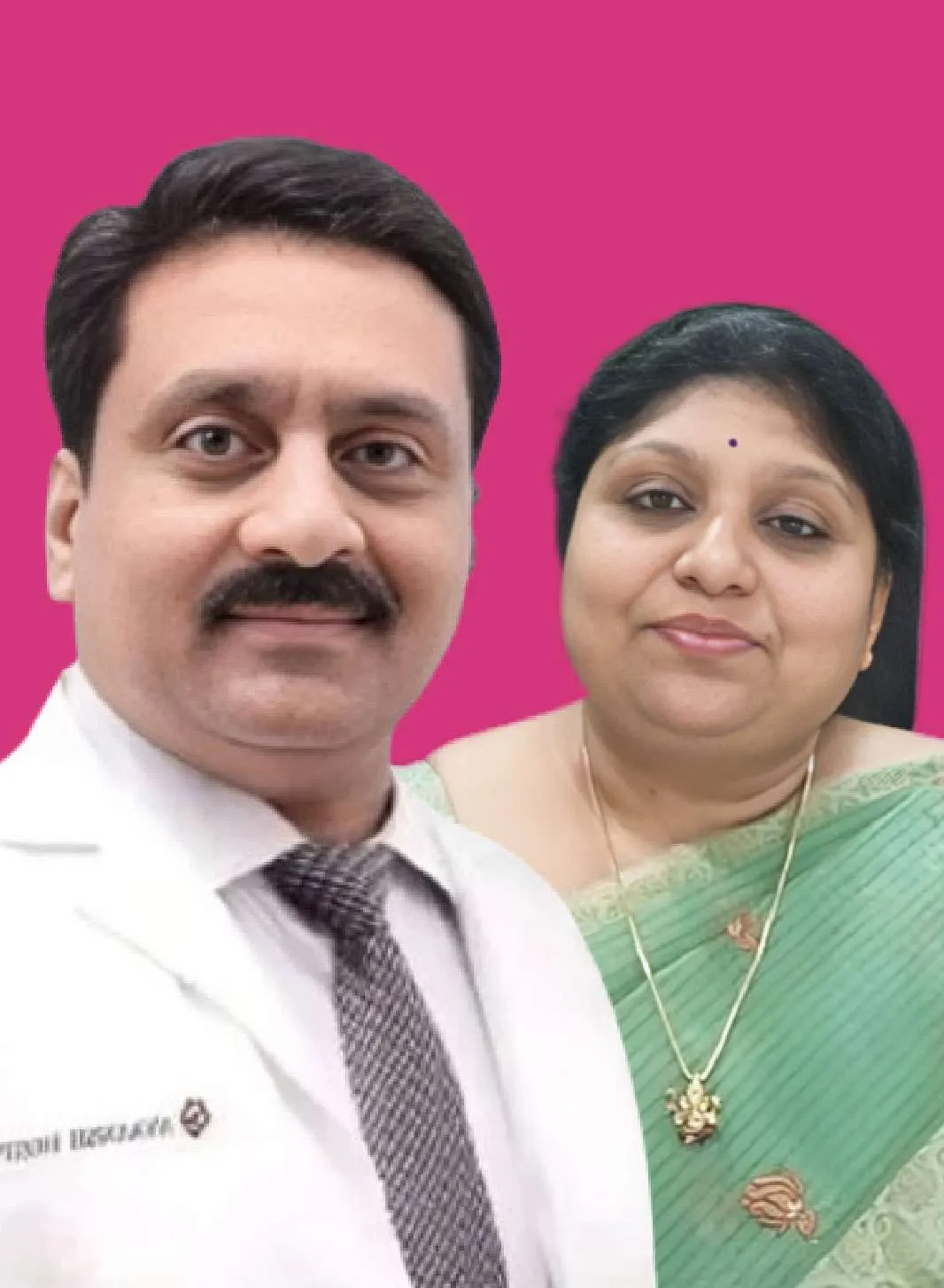- Emergency Line: 08022225555 / 08022960390 / 9958816886
- Location: Bangalore, Pune, Hyderabad
- 24/7 - Available
- Emergency Line: 08022225555 / 08022960390 / 9958816886
- Location: Bangalore, Pune, Hyderabad
- 24/7 - Available


Successful Treatments
Years of Experience
Specialized in providing world-class IVF and fertility treatment in Bangalore, Ayaansh Hospital is a pioneer, leading the way among the chain of IVF centres led by the expertise of Dr. Sreenivasa Rao and Dr. Haritha Rao. Bringing in 3 decades of experience in the field of reproductive medicine, our fertility experts offer unwavering support for even the most complex and challenging infertility cases. Our ethos at Ayaansh is to continue to offer advanced care and personalized treatment to individuals in and across Bangalore.
Our comprehensive fertility treatment in Bangalore encompasses the reproductive health of women, infertility issues faced by individuals & couples and post-treatment care. With personalized treatment plans, each individual’s concerns are met with the best solution, and treated by top fertility specialists. At Ayaansh, we believe to stay ahead in terms of knowledge and technology, which is supported by our advanced labs and equipment which is what results in the undivided medical care and attention that patients get.
With a patient-first approach, Ayaansh Hospital’s trained and experienced team led by Dr. Sreenivasa Rao & Dr. Haritha Rao works towards offering affordable IVF and fertility treatment in Bangalore, without compromising on quality results. We prioritise your comfort and convenience, offering seamless care from initial consultation to treatment completion.
Ayaansh Hospital stands as a centre of excellence for IVF treatment in Bangalore, offering hope to couples who dream of starting their parenthood journey. We strive to support you at every step of your fertility journey with proven solutions, turning every challenge into a hope for your future.
With a focus on patient well-being and a comprehensive range of medical specialties,
we at Ayaansh Hospital aim to provide the best possible care to every patient.
| Benefits | Ayaansh Hospital | Other Hospitals |
|---|---|---|
| Advanced IVF, ICSI & IUI Technology | ✅ | X |
| High Success Rates | ✅ | X |
| Personalized Fertility Plans | ✅ | X |
| In-house Expert Fertility Team | ✅ | X |
| Emotional & Psychological Support Care | ✅ | X |
| Minimal Wait Time for Treatment | ✅ | X |

Dr. Sreenivasa Rao Director and Head – Ayaansh Hospital (Gynecological Oncology Laparoscopy and Robotic Surgery)
Dr. P Sreenivasa Rao, a distinguished alumnus of the renowned Armed Forces Medical College, Pune, brings over 30 years of experience as a Gynaecologist. His journey has been marked by exceptional academic achievements and advanced training at some of the most prestigious institutions in India, including Tata Memorial Hospital, Mumbai.
He is skilled in Minimal Access and Robotic-Assisted Surgery from Delhi. Dr. Rao’s deep commitment to patient care, combined with his expertise, is what makes him a fertility specialist, particularly for complex cases in IVF. His approach to medicine is holistic, treating each patient with compassion, understanding their physical, emotional, and social needs. His ability to connect with patients makes him a truly inspiring and trusted doctor.
Dr. Haritha Rao Director and Head – Ayaansh Hospital (Fertility and Reproductive Medicine)
Dr. Haritha Rao is the Director and Head of Fertility and Reproductive Medicine, making significant contributions to the field of reproductive health. With her extensive experience in fertility treatments, she has guided several couples on their journeys to parenthood.
Under her leadership, the department has become a centre of excellence, known for its high success rates and innovative techniques. Dr. Haritha Rao’s commitment to personalised patient care, coupled with her expertise in the latest reproductive technologies, has made her a trusted and respected figure in providing IVF treatment in Bangalore. Her work continues to inspire and bring hope to those finding it difficult to conceive.
Depending on the underlying cause of infertility, treatments may include simple options like OVULATION INDUCTION, TIMED INTERCOURSE GUIDANCE, OR ADVANCED PROCEDURES like Intrauterine Insemination (IUI), In-Vitro Fertilization (IVF), Intracytoplasmic Sperm Injection (ICSI), and Donor Programs. Our team of fertility specialists in Bangalore at Ayaansh Hospital will conduct a thorough evaluation and suggest the most suitable, effective, and affordable treatment plan tailored to your needs.
When looking for the Best IVF Centre in Bangalore, consider the following factors:
Yes, there is an INCREASED CHANCE OF HAVING TWINS OR MULTIPLE PREGNANCIES in fertility treatments like IVF, IUI, or Ovulation Induction. This happens because sometimes more than one embryo is transferred during IVF, or multiple eggs may be released in ovulation induction cycles.
While IVF is generally safe, like any medical procedure, it may involve certain risks and side effects, including:
The number of IVF cycles required varies from person to person. Some couples may conceive in the first cycle, while others may need multiple attempts depending on factors such as:
Yes, IVF can help treat male infertility, especially when combined with ICSI (Intracytoplasmic Sperm Injection). Male infertility factors such as LOW SPERM COUNT, POOR SPERM MOTILITY, ABNORMAL SPERM SHAPE, OR BLOCKED SPERM DUCTS can be overcome by directly injecting a healthy sperm into the egg (ICSI) during IVF.
An IVF treatment cycle typically takes around 4 to 6 weeks from start to finish. This includes ovarian stimulation, egg retrieval, fertilization, and embryo transfer, followed by a waiting period for a pregnancy test. Choosing the best IVF Centre in Bangalore will ensure that you have clear information and guidance in this journey and the fertility experts will offer the best solution based on individual response to medication and specific clinic protocols.





